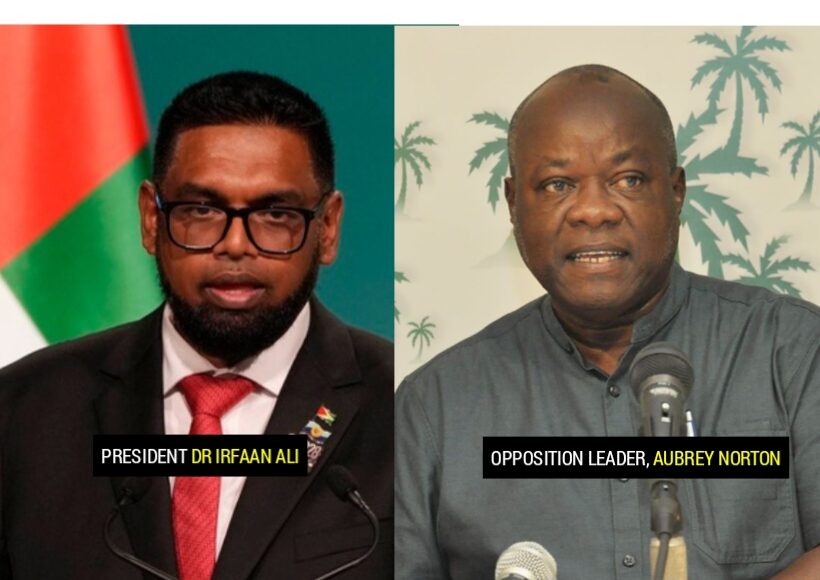The National Toshaos Council (NTC) Conference kicked off on Monday at the Arthur Chung Conference Centre (ACCC) in Georgetown, bringing together leaders from indigenous communities across the country to discuss pressing issues. The event saw the attendance of President Irfaan Ali, Vice President Bharrat Jagdeo, and several other government ministers.
However, their attendance at the conference has drawn criticism from Opposition Leader Aubrey Norton, who accused the government of using the NTC to exert control over indigenous communities.
Norton opened his party’s press conference yesterday, stating, “The PPP must desist from seeking to dominate and control the National Toshaos Council.”
He argued that President Ali’s involvement with the NTC is a clear indication of the government’s lack of genuine interest in the development of indigenous communities.
The leader of the People’s National Congress Reform (PNC/R) said the government’s actions reflect a commitment to “dominating and controlling the lives of people in indigenous communities” rather than addressing their key concerns.
Moreover, Norton highlighted several issues that he believes the government has failed to address, including the indigenous people’s right to manage their organisations independently, the need for free, prior, and informed consent, and the ongoing challenges faced by communities in Region Nine. He criticised the government’s handling of the twin problems of drought and flooding in Region Nine, and of neglecting necessary measures to address these issues.
To this end, Norton reaffirmed his party’s commitment to indigenous development, stating that the party was dedicated to creating sustainable solutions for indigenous communities.
“We in the PNCR-APNU are committed to continue the development of reservoirs to save water during the rainy season and to develop a proper program of drainage and irrigation to help the farmers and people of Region Nine,” he said.
Further, he noted that his party development strategy will be people-centered and will focus on consultation with indigenous communities to ensure their needs are met and their sustainability is prioritized.













